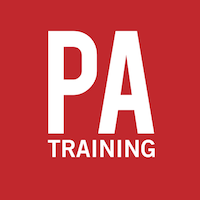Course Overview
Any document with errors in it reflects badly on your organisation. But proof-reading is a lot more than looking out for typographical mistakes. The alert proof-reader needs to be aware of more than 30 key areas where mistakes can occur, and spotting these is even harder online. But proof-reading shouldn’t be an excuse to re-edit the words. How do you steer a middle course while picking up any errors?
Who the course is for
Anyone who is asked to read through and check written material, whether in print or online. This could be in anything from letters, emails, magazine pages or annual reports to sales copy and research documents.
Learning Objectives
- What proof-reading means, and the fine line between between this and editing.
- Understanding the differences between online and print, where the classic mistakes occur and how to spot them.
- Understanding and using the classic BSI proof-reading marks.
- When to trust the text and when to check it.
- How to spot the errors when you’re not entirely confident of your own grammar and spelling skills.
- Making text fit: how to add and delete lines without the need to create extra words.
- Handling large amounts of tabular material.
- Dealing with the problems of proof-reading your own writing.
Course Outline
Why proof-reading is a lot more than looking for spelling or grammar mistakes.
These days, there is so much more pressure on delivering written communication to others, whether through a website, a document or a text page. Many organisations now lack any editing function, and the pressure is on writers to get it right first time. But everyone makes mistakes. It could be a simple transposition of two numbers, using the wrong word although it may be correctly spelt (adverse and averse, for example), or a date reference like ‘this month’ that will soon be incorrect. If such errors creep in, they can make you look foolish; they reflect badly on your organisation, and could result in a company losing business.
The dangers of relying on grammar and spelling checkers.
First, most people use American spell checks. Are you happy to see favour, labor or specialize in the things you read? And so many words can be spelt in two or three ways. A spellchecker is a dumb thing: if a words is spelt correctly (though it may be the wrong word in that context) it will pass over it. Grammar checkers will drive you crazy with expressions like ‘consider fragmenting’ and are often plain wrong. You need to have the confidence to spot what’s right and what’s wrong. We look at areas that always cause problems.
Other key areas that always cause problems, where the proof-reader needs to be on red alert
- Mistyped telephone numbers or prices
- Tenses
- Punctuation inconsistencies
- House style
- How to proof-read to spot errors.
The big danger in proof-reading is actually reading it, rather than checking it. We show you how to avoid this problem.
When you should make changes to the original text: a list of 30 key areas to watch out for when you’re checking any written communication. There are many things that often only become apparent when a document is printed or it appears online: bad word breaks, inconsistent spacing or indented paragraphs; very long sentences; word repetition and many more.
Getting there
This course will be held at Press Association 292 Vauxhall Bridge Road London SW1V 1AEAbout Press Association
The Press Association (PA) is the national news agency for the UK and Ireland and a leading multimedia content provider across web, mobile, broadcast and print. For the last 147 years PA has been providing fast, accurate feeds of text, data, photos and video. Today the business is increasingly focused on the delivery of complete products for both digital and print clients.
The Press Association Training courses are specifically tailored to ensure they include the very latest developments in the rapidly changing world of the media.
All
of PA's trainers are working journalists or PR professionals with the
most up-to-date knowledge who always shape courses to the individual
needs of those attending.










